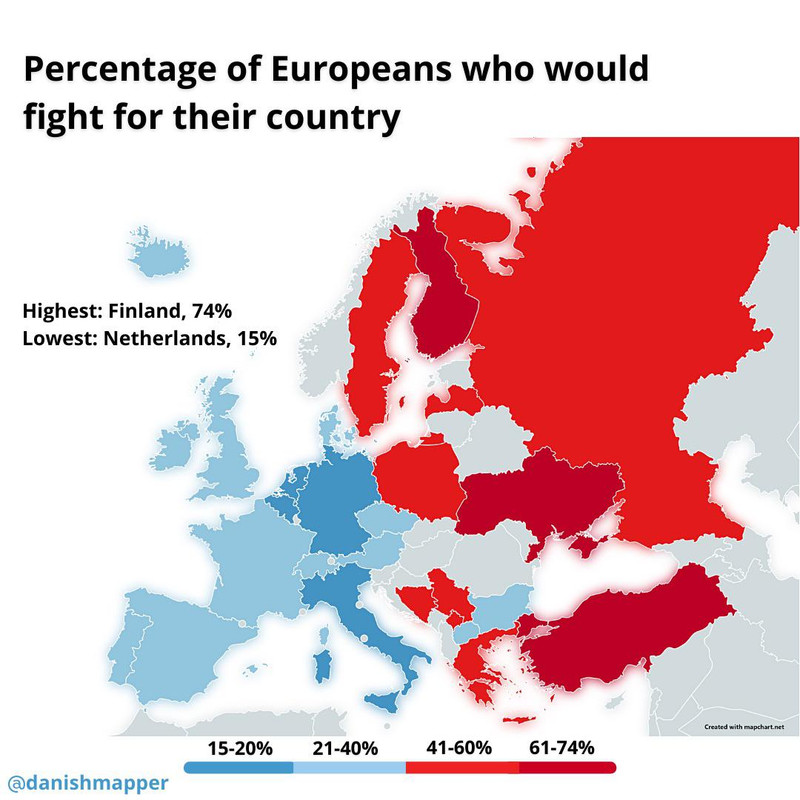UK - Reino Unido
Moderador: Conselho de Moderação
- cabeça de martelo
- Sênior

- Mensagens: 39541
- Registrado em: Sex Out 21, 2005 10:45 am
- Localização: Portugal
- Agradeceu: 1137 vezes
- Agradeceram: 2858 vezes
- cabeça de martelo
- Sênior

- Mensagens: 39541
- Registrado em: Sex Out 21, 2005 10:45 am
- Localização: Portugal
- Agradeceu: 1137 vezes
- Agradeceram: 2858 vezes
Re: UK - Reino Unido
Algo semelhante também acontece nas Forças Armadas. Há muitos Sargentos e Oficiais Britânicos que pura e simplesmente mudam-se para a Austrália e por lá continuam a sua carreira até à reforma.
- P44
- Sênior

- Mensagens: 55288
- Registrado em: Ter Dez 07, 2004 6:34 am
- Localização: O raio que vos parta
- Agradeceu: 2759 vezes
- Agradeceram: 2438 vezes
- cabeça de martelo
- Sênior

- Mensagens: 39541
- Registrado em: Sex Out 21, 2005 10:45 am
- Localização: Portugal
- Agradeceu: 1137 vezes
- Agradeceram: 2858 vezes
- cabeça de martelo
- Sênior

- Mensagens: 39541
- Registrado em: Sex Out 21, 2005 10:45 am
- Localização: Portugal
- Agradeceu: 1137 vezes
- Agradeceram: 2858 vezes
- P44
- Sênior

- Mensagens: 55288
- Registrado em: Ter Dez 07, 2004 6:34 am
- Localização: O raio que vos parta
- Agradeceu: 2759 vezes
- Agradeceram: 2438 vezes
- cabeça de martelo
- Sênior

- Mensagens: 39541
- Registrado em: Sex Out 21, 2005 10:45 am
- Localização: Portugal
- Agradeceu: 1137 vezes
- Agradeceram: 2858 vezes
- cabeça de martelo
- Sênior

- Mensagens: 39541
- Registrado em: Sex Out 21, 2005 10:45 am
- Localização: Portugal
- Agradeceu: 1137 vezes
- Agradeceram: 2858 vezes
Re: UK - Reino Unido
UK voters want closer relationship with EU in ‘significant’ shift since Brexit
Major study finds public see ties with Europe as more important than links with US and many ‘exhausted’ by ‘toxic’ debate

Protesters gather in front of the Foreign Office and Downing Street, demanding a new election and the UK's rejoining of the EU on 25 March 2023. Photograph: Sinai Noor/REX/Shutterstock
Almost twice as many UK voters now believe a close relationship with the EU is more important for peace, prosperity and security than ties with the US, according to a major new study of post-Brexit attitudes.
The report, based on extensive polling and discussion groups with people of all Brexit persuasions, finds that attitudes towards the EU are becoming more favourable across a range of policy areas, and that the entire Brexit debate is now far less toxic and more pragmatic.
This, its authors say, will give a potential Labour government “space and permission” to work towards closer links, particularly on issues of trade, security and defence, where a clear majority of the public is now in favour. The report by the independent thinktank British Future found that 52% of the public would now like the UK to have a closer relationship with the EU, with only 12% saying it should have a more distant one, and 27% in favour of maintaining the status quo.
Asked which relationship they regarded as most important for peace, prosperity and stability, almost half of respondents (48%) ranked the EU first, above the US (27%) and the Commonwealth (25%).
As evidence grows of the economic damage done to the UK by Brexit, the poll found 61% of people now favour closer cooperation over both trade and science and research with the EU. Some 68% back closer cooperation over crime and terrorism, 57% on customs arrangements and 57% on international health.
The report notes that UK attitudes have “shifted significantly against” leaving. From discussion groups it identified “a sense of public exhaustion with the issue of Brexit” with most people “keen to put the divisions of previous years behind them”.
While there was little evidence to suggest that people in this country felt European, or regarded themselves as sharing European values, they were nonetheless open to working more with the EU out of pragmatic interest.
The report said: “There is majority support for a less heated debate on the UK-EU relationship across both 2016 Leave voters (56%) and Remain voters (73%), as well as from both Conservative supporters (61%) and Labour supporters (68%) alike. Importantly, support for a less heated debate was consistent: around six in ten, across all age groups that were eligible to vote at the time of the referendum.
“This suggests the potential for an updated and less divisive ‘future relationship’ than previously. Meanwhile younger people aged 18-24, who largely would have been too young to participate in the referendum, showed plurality agreement (45% agree, while 12% disagreed).”
Sunder Katwala, director of British Future, said there had already been signs of a willingness among the public to see the UK government working more closely with the EU, with the positively received introduction of the Windsor Framework on arrangements for post-Brexit trade between Great Britain and Northern Ireland earlier this year, and the more recent agreement on the UK rejoining the EU science programme Horizon as an associate member from 1 January next year.
But Katwala said such was the shifting mood that a new government “could try to go further”.
“Keir Starmer and Rachel Reeves have talked about resetting the relationship with the EU. The public will give them space and permission for increasing pragmatic cooperation – though it remains unclear how much appetite there is for this in Brussels,” he said.
“The challenge for those who want a future government to be bolder still – and reconsider more totemic issues like the single market, free movement or a project to rejoin the EU itself – is that this would mean opening up more contested political arguments and reopening the Brexit debate.”
To date, Starmer has been reluctant to talk about closer links with the EU, for fear of losing support in red wall seats in the north and Midlands and being accused by the Tories of having a secret plan to rejoin. He has, however, spoken about the need to make Brexit work better for the UK, particularly economically.
The survey also asked people for their opinion about the decision to leave the European Union: 49% of respondents said it was wrong to leave, against 36% who said it had been right to leave. 15% did not know.
The research included a representative survey of more than 2,000 people by Foculdata as well as a series of discussion groups with people in London, Peterborough and Stockport.
 https://www.theguardian.com/uk-news/202 ... nce-brexit
https://www.theguardian.com/uk-news/202 ... nce-brexit
Major study finds public see ties with Europe as more important than links with US and many ‘exhausted’ by ‘toxic’ debate

Protesters gather in front of the Foreign Office and Downing Street, demanding a new election and the UK's rejoining of the EU on 25 March 2023. Photograph: Sinai Noor/REX/Shutterstock
Almost twice as many UK voters now believe a close relationship with the EU is more important for peace, prosperity and security than ties with the US, according to a major new study of post-Brexit attitudes.
The report, based on extensive polling and discussion groups with people of all Brexit persuasions, finds that attitudes towards the EU are becoming more favourable across a range of policy areas, and that the entire Brexit debate is now far less toxic and more pragmatic.
This, its authors say, will give a potential Labour government “space and permission” to work towards closer links, particularly on issues of trade, security and defence, where a clear majority of the public is now in favour. The report by the independent thinktank British Future found that 52% of the public would now like the UK to have a closer relationship with the EU, with only 12% saying it should have a more distant one, and 27% in favour of maintaining the status quo.
Asked which relationship they regarded as most important for peace, prosperity and stability, almost half of respondents (48%) ranked the EU first, above the US (27%) and the Commonwealth (25%).
As evidence grows of the economic damage done to the UK by Brexit, the poll found 61% of people now favour closer cooperation over both trade and science and research with the EU. Some 68% back closer cooperation over crime and terrorism, 57% on customs arrangements and 57% on international health.
The report notes that UK attitudes have “shifted significantly against” leaving. From discussion groups it identified “a sense of public exhaustion with the issue of Brexit” with most people “keen to put the divisions of previous years behind them”.
While there was little evidence to suggest that people in this country felt European, or regarded themselves as sharing European values, they were nonetheless open to working more with the EU out of pragmatic interest.
The report said: “There is majority support for a less heated debate on the UK-EU relationship across both 2016 Leave voters (56%) and Remain voters (73%), as well as from both Conservative supporters (61%) and Labour supporters (68%) alike. Importantly, support for a less heated debate was consistent: around six in ten, across all age groups that were eligible to vote at the time of the referendum.
“This suggests the potential for an updated and less divisive ‘future relationship’ than previously. Meanwhile younger people aged 18-24, who largely would have been too young to participate in the referendum, showed plurality agreement (45% agree, while 12% disagreed).”
Sunder Katwala, director of British Future, said there had already been signs of a willingness among the public to see the UK government working more closely with the EU, with the positively received introduction of the Windsor Framework on arrangements for post-Brexit trade between Great Britain and Northern Ireland earlier this year, and the more recent agreement on the UK rejoining the EU science programme Horizon as an associate member from 1 January next year.
But Katwala said such was the shifting mood that a new government “could try to go further”.
“Keir Starmer and Rachel Reeves have talked about resetting the relationship with the EU. The public will give them space and permission for increasing pragmatic cooperation – though it remains unclear how much appetite there is for this in Brussels,” he said.
“The challenge for those who want a future government to be bolder still – and reconsider more totemic issues like the single market, free movement or a project to rejoin the EU itself – is that this would mean opening up more contested political arguments and reopening the Brexit debate.”
To date, Starmer has been reluctant to talk about closer links with the EU, for fear of losing support in red wall seats in the north and Midlands and being accused by the Tories of having a secret plan to rejoin. He has, however, spoken about the need to make Brexit work better for the UK, particularly economically.
The survey also asked people for their opinion about the decision to leave the European Union: 49% of respondents said it was wrong to leave, against 36% who said it had been right to leave. 15% did not know.
The research included a representative survey of more than 2,000 people by Foculdata as well as a series of discussion groups with people in London, Peterborough and Stockport.
- P44
- Sênior

- Mensagens: 55288
- Registrado em: Ter Dez 07, 2004 6:34 am
- Localização: O raio que vos parta
- Agradeceu: 2759 vezes
- Agradeceram: 2438 vezes
- prometheus
- Avançado

- Mensagens: 584
- Registrado em: Sáb Jul 04, 2020 11:07 am
- Agradeceu: 131 vezes
- Agradeceram: 78 vezes
Re: UK - Reino Unido
https://www.ft.com/content/9c2df35f-555 ... e125d6c410
Britain won’t rejoin the EU for decades — if ever
The sensible approach for the UK is to seek a closer and more co-operative relationship with Brussels
On two occasions in the past month, continental Europeans have asked me whether the UK will rejoin the EU. Not for many decades, if ever, I replied. This is so despite the shift in British opinion over the wisdom of Brexit. If the electorate had known in 2016 what it knows today it would have voted to remain. But it did not know. The result was a leap into the dark. But that leap happened. As the ancient philosopher Heraclitus told us, “you cannot step into the same river twice”: neither you nor the river would be the same. This is also true of the EU and the UK. The decision to reapply would not reverse the decision to leave: both the UK and the EU have changed.
That British public opinion has shifted powerfully is evident. According to the National Centre for Social Research, the average of six recent polls shows 56 per cent of respondents in favour of rejoining (or joining), though the individual polls varied from 60 to 49 per cent in favour. Even more telling is a report by UK in a Changing Europe and Public First (of which my daughter is founding partner), published in September. This reported that 22 per cent of Leave voters thought that Brexit had turned out badly or very badly against only 18 per cent who thought it had turned out well or very well. “Bregret” then is rife. The fact that Leave voters feel so let down is not surprising. But it is also not good for the reputation of our democracy. (See charts.)
So, why, given this awakening to (an entirely predictable) reality, should the effort not be made to rejoin? There are three decisive reasons: first, it would create a host of new and damaging uncertainties; second, it would tear British politics apart just as they were calming down; third, the deal the UK would get would be quite different from the one it had, not least because, as Michel Barnier, the erstwhile EU negotiator, has told the Financial Times, “The EU today is no longer the EU that the UK left. We have begun to draw the lessons of Brexit.”
The uncertainty an application to join would create is quite clear. The battle to reapply alone would consume much of a parliament. There would need to be a new referendum — in my view, two, one to launch negotiations and another to assess its terms. Between these, there would be yet another negotiation, with unpredictable outcomes. The UK would look deranged in doing this so soon. For business, it would be a nightmare.
Moreover, reopening the question would be bitterly divisive. Yes, the result of a referendum might go the other way this time. But that is far from certain. What it would certainly do is redivide the country, with Leavers viewing it as a betrayal and Remainers as a chance for revenge. Labour, if it were indeed in government, would be mad to undertake so divisive a project. Worse, it would divert attention and energy away from tackling many other economic and social challenges. Sir Keir Starmer knows this.
Most important, the outcome would not be the UK’s to decide. The EU would want to be quite confident that the new member would be more co-operative and committed than the old one. Given the many challenges the EU confronts, it cannot afford to take on a big and potentially hostile member. Who can forget the offensive scene in which Nigel Farage and his Brexit party colleagues stood with their backs to the podium while the anthem played at the opening session of the EU parliament in 2019?
It would be reasonable, then, for the EU to insist that there would be neither opt outs nor rebates. Those are history. The UK would also surely have to join the eurozone. That would not only be a test of its commitment, but would also make it more difficult to leave, as the eurozone crisis showed. It would also be mere common sense, prior to opening negotiations, to demand that the UK’s vote in favour, in a referendum, would be at least 60 per cent. Even higher levels would make sense. In 1975, 67 per cent of voters were in favour. We know that even this did not prove lasting.
The EU itself has changed. This is most obviously true with “Next Generation EU”, the package agreed in response to Covid in 2020, which created common borrowing. Also important is the decision to co-ordinate the response to the war in Ukraine. Rejoining must surely include a commitment to the creation of a more integrated EU. That is still not what more than a small minority of Britons appears to want.
For the moment, Starmer’s approach is the only sensible one — to replace ideological posturing with pragmatic steps towards a closer and more co-operative relationship. Could anything plausibly replace that? Yes. If Trump pulled the US out of Nato, everything might change. But that could not be a solution a sane person would really desire.
- P44
- Sênior

- Mensagens: 55288
- Registrado em: Ter Dez 07, 2004 6:34 am
- Localização: O raio que vos parta
- Agradeceu: 2759 vezes
- Agradeceram: 2438 vezes
- knigh7
- Sênior

- Mensagens: 18740
- Registrado em: Ter Nov 06, 2007 12:54 am
- Localização: S J do Rio Preto-SP
- Agradeceu: 1963 vezes
- Agradeceram: 2490 vezes
Re: UK - Reino Unido
Se.no Reino Unido está assim, imagina na França, Alemanha, Holanda, Bélgica, Austria, etc
- cabeça de martelo
- Sênior

- Mensagens: 39541
- Registrado em: Sex Out 21, 2005 10:45 am
- Localização: Portugal
- Agradeceu: 1137 vezes
- Agradeceram: 2858 vezes
- Suetham
- Sênior

- Mensagens: 9629
- Registrado em: Ter Abr 12, 2022 9:10 am
- Agradeceu: 298 vezes
- Agradeceram: 617 vezes
Re: UK - Reino Unido
https://www.economist.com/britain/2024/ ... ously-thin
Britain’s armed forces are stretched perilously thin
Too few people, too much botched procurement
Britain’s armed forces are stretched perilously thin
Too few people, too much botched procurement



